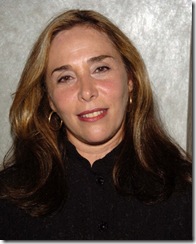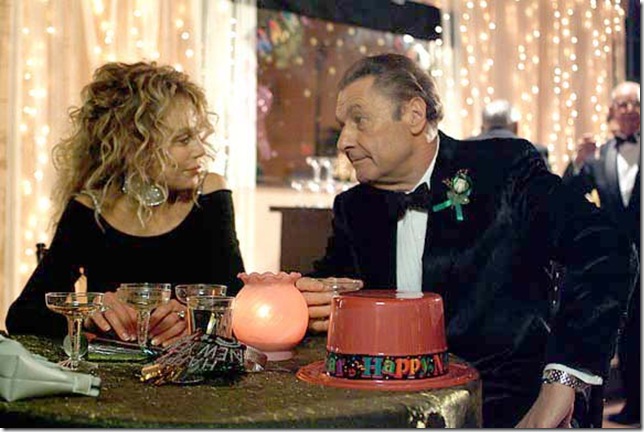Geared as it is to the senior set, Boynton Beach Club probably makes more commercial sense as a theatrical musical than a feature film. But based on the developmental reading at Boynton’s Park Vista Theatre this weekend, the authors seem stumped for much dramatic justification for the 2006 movie’s transition to the stage.
With a so-so score by Ned Paul Ginsburg and Michael Colby and a choppy book by Susan Seidelman — the film’s director and co-writer — at this point the show mainly succeeds at emphasizing the movie’s weaknesses. A story of several South Florida “active adults” who meet at a bereavement support group and try to start their lives over after the death of their spouses, the show tries to balance the personal struggles of self-conscious older folks seeking new romance with the usual sitcom images of Sunshine State seniors.
As with the movie, though, the two tones fight each other much of the time and the characters — instead of being enhanced by the music — seem more two-dimensional.
I am not convinced that Boynton Beach Club is a bad idea for a musical, but it does not take easily to the genre. And so far its creative team has not figured out how to marry the story to the emotional advantages music affords. Oh, Ginsburg and Colby have come up with plenty of songs — 19 and two reprises. That’s probably too many, as the show feels long at two-and-a-half hours. Only a few stand out well on first hearing, while others are superfluous to the central plot and could easily be jettisoned.
 The musical opens with a Boynton resident named Marty and his neighbors singing of their idyllic retired life (The Most Wonderful Place on Earth), just before Marty is run over and killed — offstage — by a driver on her cellphone. So his widow Marilyn becomes the latest coaxed into trying to assuage her grief at the bereavement club.
The musical opens with a Boynton resident named Marty and his neighbors singing of their idyllic retired life (The Most Wonderful Place on Earth), just before Marty is run over and killed — offstage — by a driver on her cellphone. So his widow Marilyn becomes the latest coaxed into trying to assuage her grief at the bereavement club.
The club, as the men — outnumbered 8 to 1 — realize, is a great place to meet and hook up with needy, appreciative women. There is self-styled playboy Harry, who helps initiate recent widower Jack to the buffet of women at the club. Not that Jack needs such help, once aggressive Sandy sets her sights on him. Then there’s romantically burned Lois, who meets Don, a seemingly good catch, at a nearby restaurant, but naturally he is not all that he appears.
Although she has given herself a challenge juggling four such story threads, this ensemble approach is inherent to the material. But gumming up the works are a handful of extraneous secondary characters who we never get to know. There either needs to be more of them or less of them, and I’d vote for less.
Among the eclectic score’s assets are a couple of solos: Jack’s reaction to his first date with Sandy (Just My Luck) and Florence’s seduction of Harry (One Less Night), though that subplot always struck me as a lame sequence in the movie. Candidates for the cutting room floor include a generic gym number (Firm and Fit Again) and an awkward tangent about Lois’s loss of her gay son.
The concert has certainly attracted a strong cast of Broadway veterans, particularly Barbara Walsh (Lois), Heather MacRae (Marilyn), Allan Campbell (Don) and Bethe B. Austin (Flo). The show could use a bit more box office power if it ever does make an assault on Broadway, but this company was more than adequate to test the material, which is what these concerts are about.
Like most shows in their early stages, Boynton Beach Club needs cutting, tightening and clarifying. Presumably local references to places like Flakowitz’s bagel shop will also find their way to the trash bin. I wouldn’t say Friday’s opening night audience embraced the show with much enthusiasm, but there is a market for it, presumably, with a lot more work.
BOYNTON BEACH CLUB, Park Vista Theatre, 7900 Jog Road, Boynton Beach. Through Sunday. Tickets: $25. Contact: www.vendini.com.
